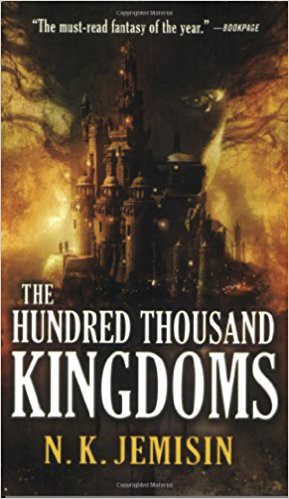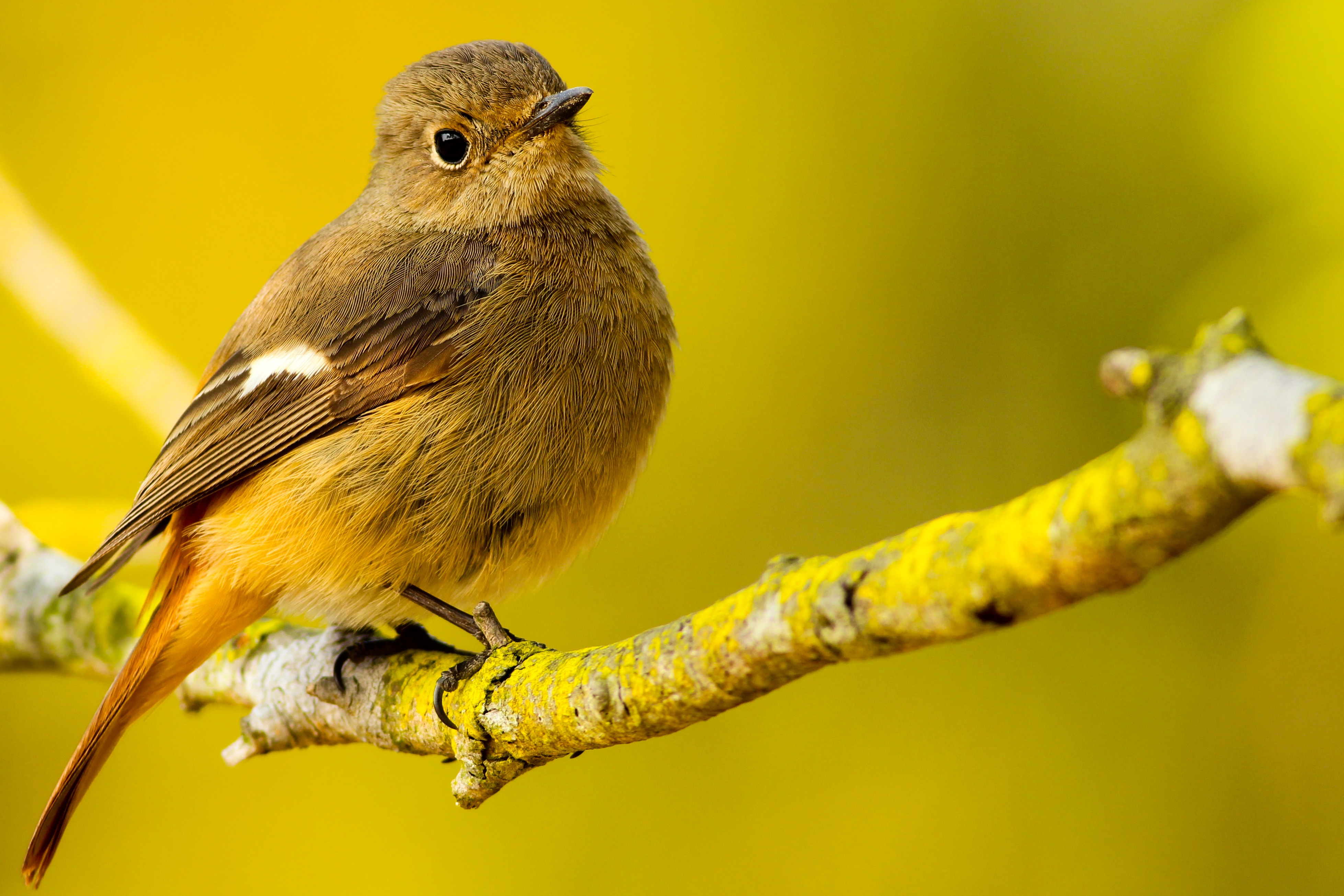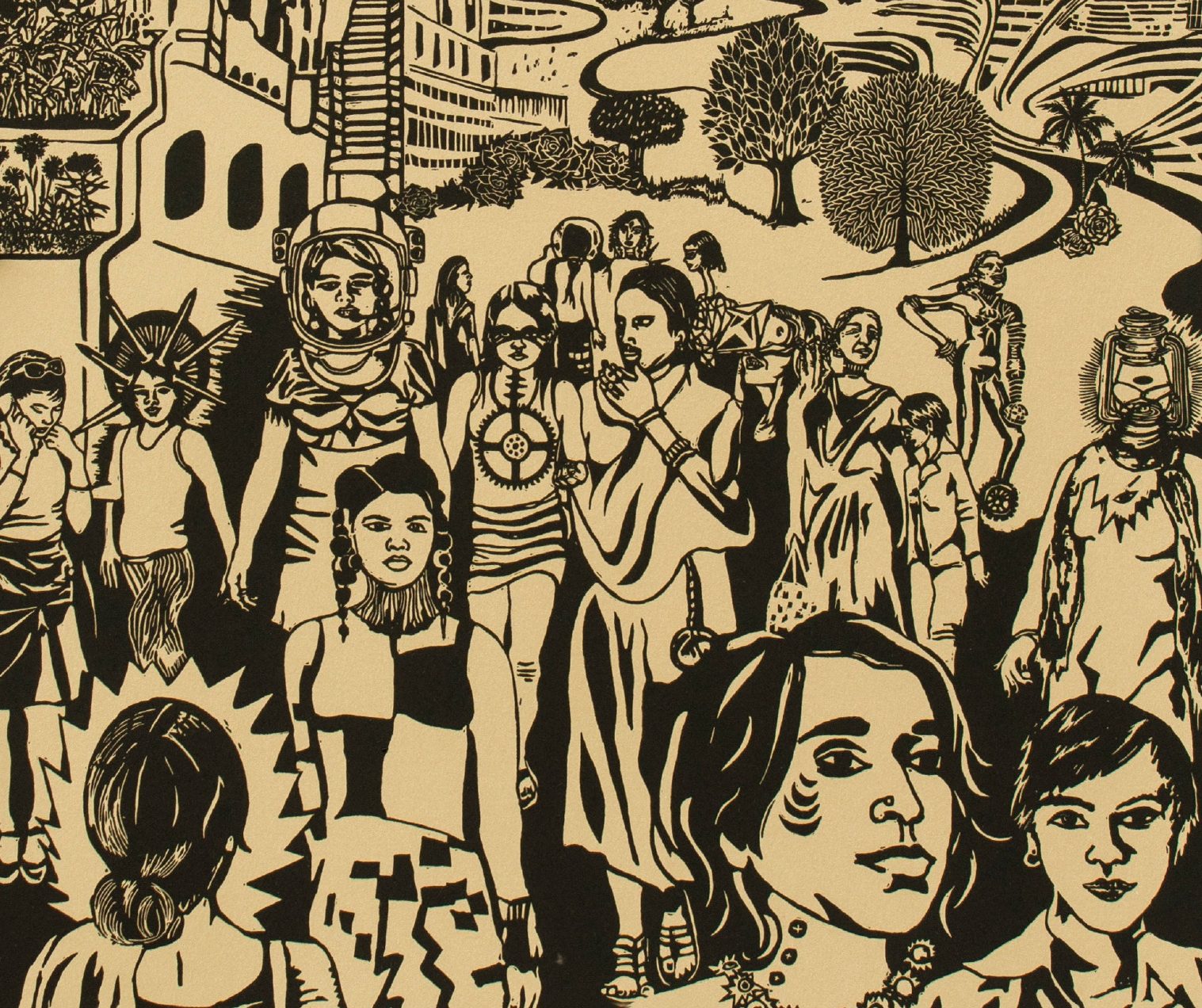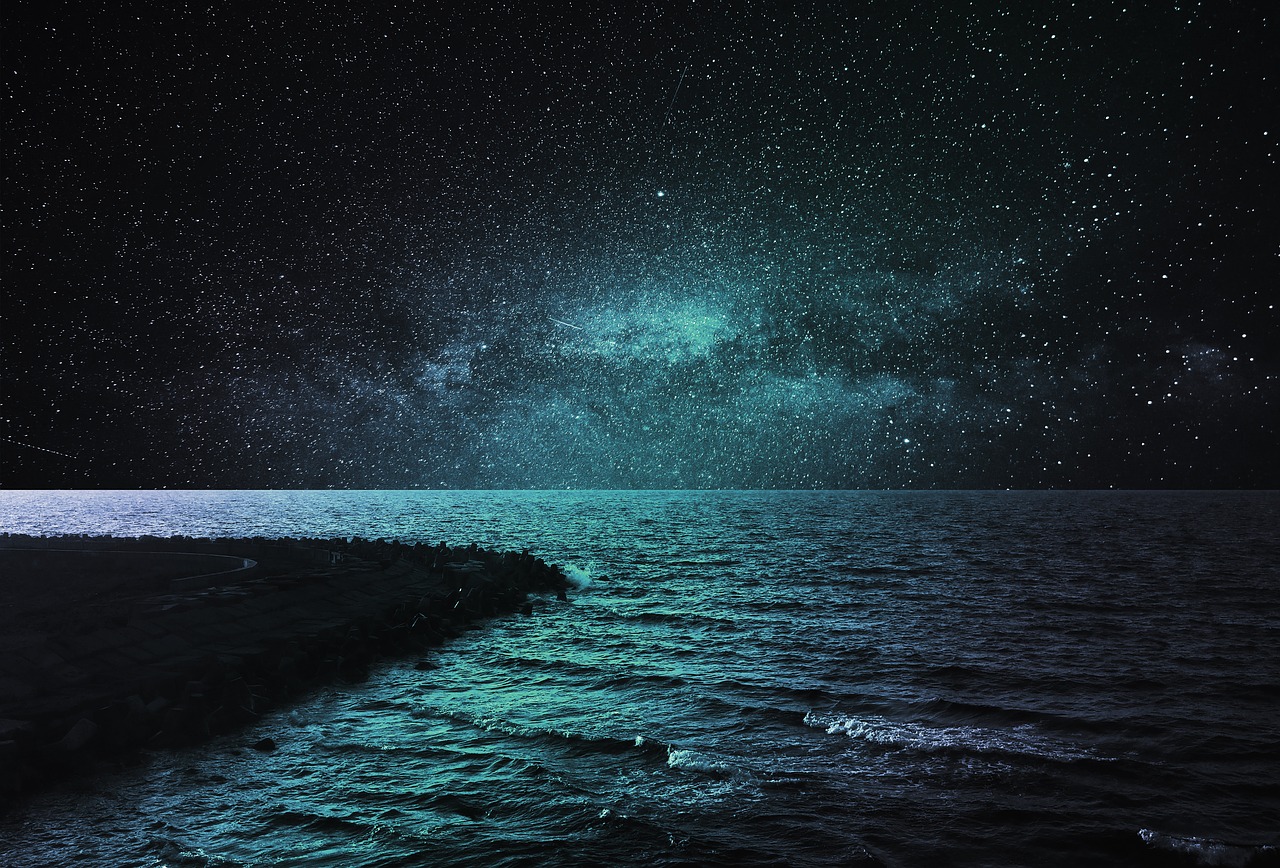Reading Lists
Science Fiction and Fantasy Novels That Take Us Beyond the Gender Binary
Five authors who explore worlds with more than two genders, with fluid genders, or with no gender at all

Most of the time, writers include only two genders in their stories, because that’s what our society tells us is valid. There are men and there are women. End of conversation. But in reality, gender is a social construct with real-world implications. In other words, despite the fact that the gender binary is essentially made up — despite the fact that gender, period, is is essentially made up — our lives are shaped by our perceived and assigned gender.
We organize our lives around the binary. Clothes, bathrooms, toys — even Doritos — are gendered. It can be difficult to trouble the notion of gender because it has such a long-reaching impact on our lives, but, to borrow from an old chant: we’re here, we’re genderfluid and nonbinary. Get used to it. And, perhaps more importantly, recognize and create more space for us.
We’re here, we’re genderfluid and nonbinary. Get used to it. And, perhaps more importantly, recognize and create more space for us.
Writers have an opportunity to put their best skills to use exploring and questioning where the constructed meets the real. (Personally, I think that’s both the opportunity and responsibility of writers, whether we’re talking about gender or anything else.) Of course, we desperately need the voices of nonbinary writers to tell these stories, but we also need nonbinary characters and their storylines to be visible in more books, period.
“I think hard times are coming when we will be wanting the voices of writers who can see alternatives to how we live now and can see through our fear-stricken society,” said Ursula Le Guin, venerated science fiction and fantasy writer, in her National Book Foundation lifetime-achievement award acceptance speech in 2014. After going on to deliver a beautiful takedown of capitalism in general and the industry of publishing in particular, she concluded, “Resistance and change often begin in art, and very often in our art — the art of words.”
Le Guin saw science fiction and fantasy as not only an opportunity to create fascinating magical and technologically advanced worlds, but also as an opportunity to envision something truly novel. These genres give us an opportunity to imagine realities untainted by a status quo that erases the lives of nonbinary folks.
These genres give us an opportunity to imagine realities untainted by a status quo that erases the lives of nonbinary folks.
So, what better setting to redefine gender and gender variant characters than the worlds created by science fiction and fantasy writers, worlds that by their very nature both reflect the constructed society created by the author and the real world we all live in?
That’s not to say that science fiction and fantasy are the only places genderfluid and nonbinary characters should live. We belong in all kinds of stories — science fiction and fantasy have just led the way.
Below are six science fiction and fantasy novels that explore gender, and their hits and misses.

The Left Hand of Darkness by Ursula K. Le Guin
“A man wants his virility regarded, a woman wants her femininity appreciated, however indirect and subtle the indications of regard and appreciation. On Winter they will not exist. One is respected and judged only as a human being. It is an appalling experience.”
Published in 1969, Ursula Le Guin’s science fiction novel The Left Hand of Darkness presents a future in which the Ekumen, a union of 83 planets, is on a mission to make contact with other planets inhabited by humans. To do so, they send one person to make first contact. Each planet was the site of genetic experimentation of various types.
On the planet called Gethen the genetic experimentation resulted in humans on this planet being primarily neuter with periods of sexuality in which they transition into either male or female hormonal dominance. When Terran ambassador Genly Ai is sent to Gethen, the inhabitants categorize him as a Pervert due to his constant state of being male. Genly observes, retells myths, and includes notes from anthropologists who studied Gethen and found that the Gethenians have lived for thousands of years without rape due to their gender fluidity. It may also, they surmise, be why they have never had a war.
Estraven, a native inhabitant and political leader of one nation, is exiled for his support of Genly, but they find each other again in another country. The two are drawn together across the galaxy and the world of Gethen for political and humane reasons and they develop a close relationship that changes their fates forever.
What a Little-Known Ursula K. Le Guin Essay Taught Me About Being a Woman
Left Hand is not without issues, though. For one, Le Guin uses male pronouns to refer to everyone, relying on the convention of the time when it was published, which is still widely used today, that “he” is the gender-neutral pronoun. (Le Guin later revised her opinion in her book Steering the Craft.) Another issue for me is that while the Gethenians are ambisexual, this is a unique feature of this one planet, which erases the gender fluidity of humans that already exists on Earth, Genly Ai’s home planet.
What I adored about The Left Hand of Darkness was the juxtaposition of a harsh planet in a moment of political upheaval against the intimate love story that unfolds between people from different worlds, centuries, and genders. While the book is not widely considered to be a love story, I would argue that portion of the narrative is where questions of gender and sexuality take on a human face.

Dawn by Octavia E. Butler
“This might be her only chance ever to watch close up as an ooloi seduced someone. She thought it should have bothered her that the ‘someone’ in this case was Joseph. She knew more than she wanted to about the wildly conflicting feelings he was subject to now.”
Octavia Butler’s Dawn (1987) is the story of Lilith Iyapo’s contact with aliens, the Oankali, over 200 years after nuclear war broke out on Earth, destroying humanity. As she interacts with the Oankali, she realizes she will be responsible for saving humanity — with or without the aliens’ help.
The Oankali are remarkable beings with sensory tentacles they use to experience the world. They also have a third gender, called ooloi, that facilitates all their sexual contact. The Oankali travel throughout the universe combining genetic material with other species they meet, a goal they describe as a biological imperative. As they incorporate new species into their genetic material, they breed out the negative tendencies of each. For humanity, our worst feature is the particular combination of our high level of intellect with our hierarchical reasoning.
When the novel opens, we find Lilith waking up on one of the Oankali ships where she is being held captive. She is the first human to have been awakened from stasis and is selected to greet all the other humans that will be awoken.

The book is an exploration of humanity, sexuality, race, xenophobia, and freedom. Ava DuVernay will adapt the book for television, and I can’t wait to see what she comes up with.
Dawn is truly a must-read. The novel is filled with compelling characters who not only have to grapple with a whole new world but also have to deal with and survive humanity’s failings, such as rape, murder, and kidnapping. Strengths of the narrative are the way the third gender of aliens facilitate sexual contact and the very human rejection of interbreeding with aliens. Weaknesses include the use of “it” for the ooloi, which has an effect of dehumanizing the third gender, and the fact that there are no overtly queer or gender variant humans, so as with Le Guin’s novel, the existing fluidity and complexity of sexuality on Earth is omitted.

Imago by Octavia E. Butler
“There were still some Humans who insisted on seeing the ooloi as some kind of male-female combination, but the ooloi were no such thing. They were themselves — a different sex altogether.”
Imago (1998) is the third book in the Lilith’s Brood trilogy. While the book takes place on the same Earth as Dawn, it is a very much changed world, 100 years later. We follow Lilith’s son, Jodahs, as he reaches an Oankali version of puberty called adolescent metamorphosis.
Jodahs is a construct, meaning he has human and Oankali genetics. When he enters his metamorphosis, it becomes clear that he will not be male or female, but rather ooloi. This is the first ooloi construct and represents a danger to humans and Oankali alike. Given their ability to combine genes, an unpaired ooloi could harm just about anyone or anything. Only finding human mates can help an ooloi control the changes in and around themselves. Alone and without mates, Jodahs becomes despondent.
As Jodahs wanders the jungle having reverted to a lizard-like state due to their loneliness, they finds two humans. And they’re fertile, a fact that should be impossible since the Oankali have sterilized all the humans who have decided not to join them. Jodahs falls in love with the siblings and decides they are his mates. He immediately changes his appearance to become pleasing to them and the three bond deeply.
Now More than Ever, We Wish We Had These Lost Octavia Butler Novels
Imago is an incredible exploration of a nonbinary gender identity, from the perspective of an ooloi, a nonbinary Oankali/human hybrid. We get to walk alongside Jodahs as their body changes and we get to feel how they feel about themselves, their sibling, and how the Oankali have treated humanity. The narrative brings the questions Butler raised around race, gender, and freedom in Dawn full circle, interrogating whether the Oankali can consider humans their equals. Butler still uses “it” to describe the third gender in this narrative, but it is less jarring due to the fact that the “it” is also the “I” telling us the story. More importantly, we finally get a (partially) human face to gender fluidity and nonbinary gender identities.

The Hundred Thousand Kingdoms by N.K. Jemisin
“A woman’s face shone at me from the darkness, proud and powerful and so breathtaking that I yearned for her as much as I had for him, and it did not seem strange at all that I did so.”
N.K. Jemisin’s debut novel from 2010, The Hundred Thousand Kingdoms, is an epic fantasy novel exploring race and gender dynamics. A young woman, Yeine, whose mother was heir to the throne of the eponymous kingdoms, must compete to take her mother’s place. Yeine struggles with the caste system in a magically built castle/city where the old gods are kept as slaves and the humans in charge serve the one true god.
Almost immediately, she meets a trickster god named Sieh and one of the creator gods named Nahadoth, aka the Nightlord, who tries to kill her in a manic state. After he regains composure, Yeine feels attracted to Nahadoth, despite warnings of his destructive and all-consuming power, and eventually allies herself with the enslaved gods.
When she’s researching her situation in the library, she stumbles upon a depiction of Nahadoth from when he was free in which he has breasts. Only upon enslavement by his former lover/brother/fellow creator god is Nahadoth forced into a static male form. He had formerly assumed many forms across the gender and biological spectrum, a reality Yeine gets to experience intimately when she’s seduced by the Nightlord and his many hands.
Another important aspect of the novel is the other half of Yeine’s family, who are Darre. In their matriarchal society, “typical” dominant gender roles are inverted. It is women who are fighters, religious figures, and leaders.
The Hundred Thousand Kingdoms is a wonderfully sexy novel with complex and compelling characters. The fluidity of Nahadoth’s gender is beautifully represented as a composite part of his nature. He is the god of change and being unchanging is painful for him. Unfortunately, I can’t remember a time we meet a genderfluid human, though her interactions with Nahadoth certainly make Yeine question a lot about herself.

Ancillary Justice by Ann Leckie
“Radchaai don’t care much about gender, and the language they speak — my own first language — doesn’t mark gender in any way. This language we were speaking now did, and I could make trouble for myself if I used the wrong forms. It didn’t help that the cues mean to distinguish gender changed from place to place, sometimes radically, and rarely made much sense to me.”
Ancillary Justice, published in 2013, is a space opera set in a colonized universe where there is one ruler to whom everyone must bow, the Lord of the Radch. In contrast to the other novels on this list, everyone in this one is referred to with the female pronoun.
This is the first book on the list where the protagonist, Breq, is actually the gender variant character. Breq is a nonbinary, asexual artificial intelligence who once occupied a ship with a retinue of enslaved bodies she implanted herself into and controlled. Due to political turmoil on one planet, and a bad run in with the Lord of the Radch, Breq ends up implanted in one single human body.
We Need More Non-Binary Characters Who Aren’t Aliens, Robots, or Monsters
One of the aspects of this novel that I most adore is how the narrative is put together. It isn’t that everyone is called “she,” but then — wink, nudge — the narrator gives us hints that this person is a female “she” and that person is a male “she.” Instead, the only time Breq speculates about the gender of people around her is when she is trying to use the conventions of a given language where pronouns are gendered. When I first read this book, I was delighted and astonished at what Leckie could achieve without giving us a marker we generally rely on to differentiate characters.
The entire series is filled with non-traditional relationships, powerful expressions of love and intimacy, and a vision for a desperately fought for, inclusive, queer community fighting against a hegemonic regime. Throughout the series a bitter battle for freedom wages, but in the end, only Breq’s ability to see herself as a flawed individual, capable of making mistakes, saves her life and the lives of her crew, friends, and family.

The Mirror Empire by Kameron Hurley
“Sometime in the last few days, Taigan had decided it was time to change the way Taigan thought of himself…hirself…herself…yes, herself, again.”
In The Mirror Empire, Kameron Hurley set out to write a world where nonbinary people exist and multiple societies’ definitions of gender and race clash against one another. The 2014 book also blurs the line between science fiction and fantasy, depicting magical, epic fantasy societies facing interdimensional foes.
One of the main characters is a powerful magician named Taigan, who experiences hir gender so fluidly, that depending on how ze is feeling, ze uses any of three pronouns: she/her, he/his, or ze/hir. Ze isn’t the only nonbinary character, as there are other named characters who use “ze” pronouns as well.
What’s exciting about this particular narrative is how it doesn’t erase gender, but rather embraces all genders. Several of the cultures in the novel acknowledge three or more genders and characters are fluent in using nonbinary pronouns. At one point, Roh, a male character from one of these cultures, laments that in another society that has slaves, those people are assigned a gender, a denial of a basic right in his society: the ability to self-define.
There is even a society that is so toxically matriarchal that husbands are possessions to be beaten, raped, shared, and killed as the wife deems fit. This society inverts the fantasy trope of a young woman being sold into marriage to a sexually abusive man (think of A Game of Thrones). What is powerful about this depiction, though, is the time we spend with the victim, Anavha, and the way the narrative condemns toxic gender binaries of any arrangement.
There are three main things I love about this novel. First, nonbinary identities are normalized. Second, more than one nonbinary character exists, so being nonbinary is represented as the diverse identity it is — not all nonbinary folks are the same and this novel gets that. Finally, there is a temptation, sometimes, to believe that a matriarchy would fundamentally be better than the patriarchy. The matriarchies we see in The Mirror Empire interrogate this assumption in productive ways.










